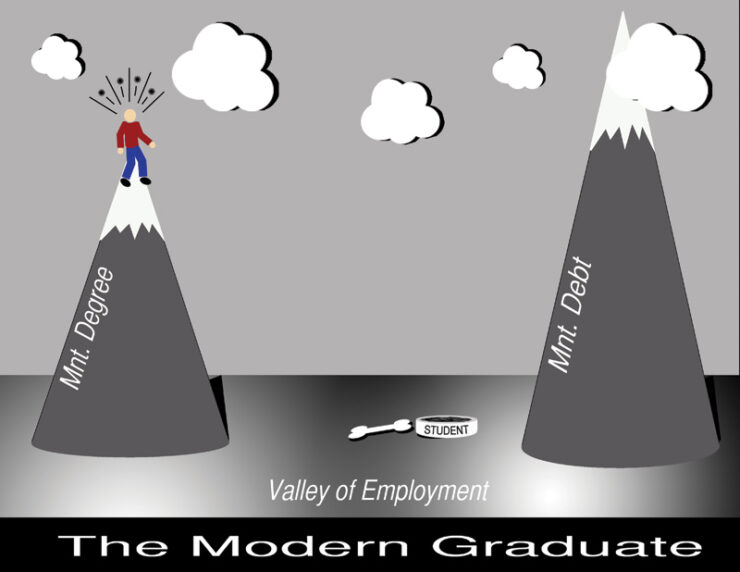 Last week, The Canadian Council on Learning (CCL) released its final report on the state of education in Canada. The independent, national learning organization is set to close in spring 2012 after the Harper government withdrew federal funding last year—and did they ever go out with a bang.
Last week, The Canadian Council on Learning (CCL) released its final report on the state of education in Canada. The independent, national learning organization is set to close in spring 2012 after the Harper government withdrew federal funding last year—and did they ever go out with a bang.
“What is the Future of Learning in Canada?” analyzes trends in the Canadian education system, from early childhood education programs to post-secondary education, as well as adult learning, workplace training, and Aboriginal learning.
The results? Canadians are falling behind. According to the report, we are “slipping down the international learning curve,” and the government is to blame. More specifically, the study states, “our governments have failed to work together to develop the necessary policies and failed to exhibit the required collective political leadership.” The CCL suggests Canada develop national education standards, and warns policymakers that without a nationwide authority to oversee common education goals, student achievement will continue to decline.
This assessment of our educational institutions seems a little out there. After all, in this edition of the Fulcrum, we write about how our own University of Ottawa was ranked among the top 200 universities in the world, along with eight other Canadian schools. This report is also released on the heals of an article published in the Economist this September in which Ontario’s education system is described as “one of the world’s best-performing schools systems.”
And the CCL does not hesitate to give credit where credit is due. With respect to post-secondary education, Canada is applauded for high education expenditures, strong rates of participation, quality of educators, and an educated immigrant population.
Despite these triumphs, the most consistent criticism of our education system throughout the report is the lack of a cohesive, nationwide approach to education policy. The CCL calls for greater cooperation between the provinces and territories—under which the responsibility of education falls—and the federal government in the development and oversight of education policy in order to create stated objectives, measures of assessment, and cohesion across the country.
This isn’t the first time lack of cooperation between the federal and provincial governments has prevented national objectives from being met—or even developed. Policies on the environment, another area of provincial jurisdiction under our constitution, have fallen to the wayside over the past decade because of disputes over which level of government is both willing and able to implement such policies.
Canadian federalism is a beautiful thing. Under our constitution, the federal and provincial governments are given the authority to regulate the aspects of Canadian society most relevant to them, and this freedom allows a geographically disperse and regionally distinct group of provinces to coexist under the flag of one nation. It’s what makes us the diverse bunch we are.
But federalism isn’t without its flaws. Some areas of jurisdiction are unclear. Health care and education, for example, fall under provincial power, but are financially supported by the federal government. The environment is a provincial concern, but the ability to negotiate an international treaty on climate change resides with the federal government. The tension between who is allowed to act vis-à-vis our constitution versus who has the resources and incentive to do so impedes our ability to get things done from time to time.
When it comes to implementing an international treaty regarding the environment or developing a set of standards for our schools, it is obvious who has both the resources and incentive to guide action. The desire to have a clean environment for generations to come is no more exclusive to British Columbians than the desire to receive a high quality education is to Ontarians. These values—irrespective of their place in the Canadian constitution—are Canadian values, desired and deserved by all.
Canada’s education system may be in a good place worldwide as it stands, but so was our record on the environment 10 years ago. The CCL is right: It is time for the provincial and federal governments to work together toward developing, implementing, and overseeing the creation of standards for our education system—an initiative that should be led by our federal government. Otherwise, the future of learning in Canada seems to have reached a dead end.
editor@thefulcrum.ca
(613) 562-5261




